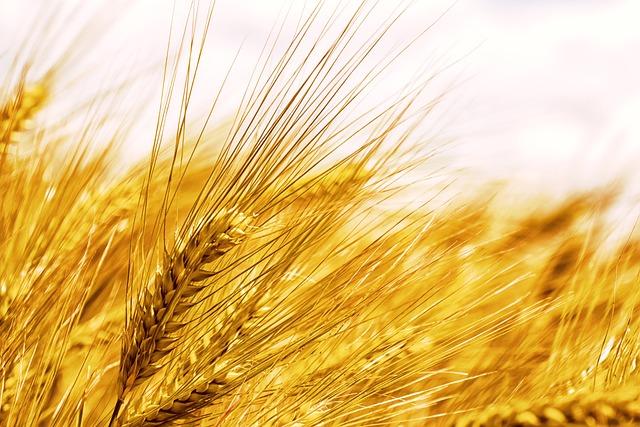In the heart of every loving pet owner’s home, our furry friends hold a special place, their wagging tails and joyful barks filling our lives with happiness and companionship. As devoted caregivers, ensuring their health and well-being is a top priority, and a balanced diet plays a crucial role in achieving this. While protein and fat often take the spotlight in discussions about canine nutrition, fiber is an equally essential component that deserves our attention. Welcome to our warm exploration of “,” where we will guide you through the benefits of this often-overlooked nutrient. From promoting digestive health to managing weight and even enhancing overall vitality, fiber is a key ingredient in crafting a wholesome diet that supports your dog’s vibrant life. Let’s embark on this journey together, discovering how a fiber-rich diet can contribute to your beloved pet’s health and happiness. Fiber: The Secret to Your Dogs Digestive Health”>
Fiber: The Secret to Your Dogs Digestive Health”>
Understanding Fiber: The Secret to Your Dogs Digestive Health
Fiber is often an unsung hero in your dog’s diet, quietly working behind the scenes to ensure optimal digestive health. This vital nutrient aids in maintaining a balanced gut microbiome, which is essential for overall well-being. By adding bulk to the stool, fiber helps regulate bowel movements and prevent constipation, while also playing a role in weight management by promoting a sense of fullness. But not all fibers are created equal. Soluble fiber dissolves in water and forms a gel-like substance, slowing digestion and aiding in nutrient absorption. Insoluble fiber, on the other hand, adds bulk to the stool and helps food pass more quickly through the stomach and intestines.
- Improved Digestion: Fiber helps move food through the digestive system efficiently.
- Weight Control: It can help your dog feel full, reducing the likelihood of overeating.
- Healthy Gut Flora: Aids in maintaining a healthy balance of bacteria in the gut.
- Reduced Risk of Disease: A diet rich in fiber can help prevent certain diseases.
Incorporating fiber into your dog’s diet doesn’t have to be complicated. Look for dog foods that list fiber-rich ingredients like pumpkin, sweet potatoes, or peas. You can also add small amounts of these foods to their regular meals. Remember, any dietary changes should be introduced gradually to avoid upsetting your dog’s stomach. With the right balance, fiber can be a game-changer in enhancing your furry friend’s digestive health and overall quality of life.

How Fiber Enhances Your Dogs Weight Management
Incorporating fiber into your dog’s diet can be a game-changer when it comes to managing their weight effectively. Fiber, a type of carbohydrate that isn’t digested by the body, plays a crucial role in ensuring your furry friend feels full longer, reducing the urge to overeat. This sense of satiety can help in maintaining a healthy weight, especially for dogs prone to obesity. By slowing down the digestive process, fiber allows for better absorption of nutrients and can help regulate blood sugar levels. This not only aids in weight control but also supports overall health.
- Regulates Appetite: Fiber increases the bulk of food, helping your dog feel full and satisfied with fewer calories.
- Promotes Digestive Health: A fiber-rich diet can prevent constipation and promote regular bowel movements, keeping your dog’s digestive tract in tip-top shape.
- Enhances Nutrient Absorption: By slowing down digestion, fiber allows for more efficient absorption of essential nutrients.
By thoughtfully integrating fiber-rich foods or supplements into your dog’s meals, you can support their weight management journey while ensuring they remain happy and healthy. Remember, always consult your veterinarian before making significant changes to your pet’s diet.

Choosing the Right Fiber Sources for Your Furry Friend
When it comes to keeping your dog healthy, choosing the right fiber sources can make a world of difference. Fiber is not just about keeping things moving smoothly in your dog’s digestive system; it also plays a crucial role in maintaining overall health. Here are some excellent fiber sources you can consider adding to your furry friend’s diet:
- Pumpkin: A natural and delicious way to add fiber, pumpkin is gentle on your dog’s stomach and can help with both constipation and diarrhea.
- Sweet Potatoes: Packed with vitamins and fiber, sweet potatoes are a tasty treat that supports digestion and provides essential nutrients.
- Oats: A fantastic source of soluble fiber, oats can help regulate blood sugar levels and support heart health.
- Carrots: Crunchy and satisfying, carrots are not only great for dental health but also offer a good dose of fiber.
- Green Beans: Low in calories and high in fiber, green beans are an excellent choice for weight management and digestion.
Incorporating these fiber-rich foods into your dog’s meals can lead to a happier and healthier pet. Always ensure any new additions to their diet are introduced gradually to avoid any digestive upset. Consult your veterinarian for personalized advice, especially if your dog has specific health needs.

Incorporating Fiber into Your Dogs Daily Meals
Enhancing your dog’s meals with fiber can significantly benefit their health and well-being. Fiber, found in plant-based foods, helps regulate the digestive system and maintain optimal gut health. Start by incorporating natural sources like pumpkin, sweet potatoes, and green beans into their diet. These ingredients are not only rich in fiber but also packed with essential vitamins and minerals.
- Pumpkin: A fantastic source of soluble fiber, pumpkin aids in digestion and can help alleviate both constipation and diarrhea.
- Sweet Potatoes: Rich in dietary fiber, sweet potatoes also offer a wealth of antioxidants and support a healthy immune system.
- Green Beans: Low in calories and high in fiber, green beans are a perfect addition to your dog’s meal plan to support weight management.
When introducing new foods, it’s crucial to do so gradually to avoid any digestive upset. Always ensure your furry friend has access to fresh water, as fiber intake can increase their need for hydration. Consult with your veterinarian to tailor the best fiber-rich diet plan suited to your dog’s specific needs.

